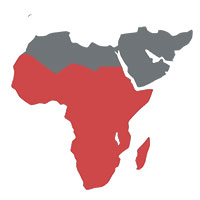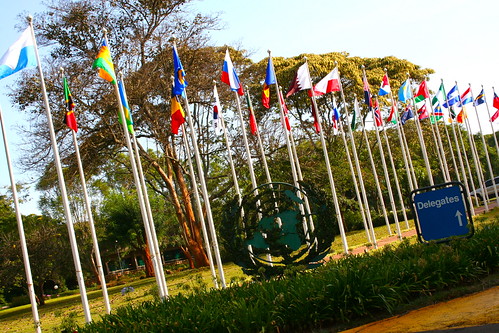Conference Hopping Ministers
Linh Do | February 24, 2011.
I had been planning a hiatus from the environmental conference scene at the end of COP16 in Cancun. Yet, just two months later, I find myself waking up in Nairobi to attend UNEP’s Global Major Groups and Stakeholders Forum (GMGSF) before the Governing Council and Global Ministerial Environmental Forum (GC/GMEF).
The incessant acronyms have helped me familiarise myself with this world again.
I’m often accused on “conference hopping”, with people often failing to understand my explanation of how every conference serves a different purpose. COP16 for example concerned the negotiation process of climate change adaptation and mitigation. Yet, the Governing Council that begins tomorrow sets the mandate and direction for UNEP over the subsequent years.
As a civil society representative, or in the case of my participation here in Kenya as one of UNEP’s youth engagement advisors, my attendance at all of these meetings is not necessarily always a necessity.
But, what about the Environmental Ministers who must implement international decisions domestically?
Jamil Ahmad, the Secretary of the Governing Council, conversed with me the other day that every year there are at least forty different environmental meetings that nation states should be present at in some capacity. Essentially, Environmental Ministers could spend every second week of the year “conference hopping” and away from their own countries for most of the year.
This raises a number of questions, including which meetings should these Ministers attend, and what of the countries who do not have the capacity to attend all forty meetings?
My friend Charlie works with UNFair Play which supports developing countries unable to finance large support terms at the UNFCCC COPs. Volunteers of the organisation attend the yearly COPs assisting with administrative duties such as note taking and photo coping, therefore freeing up the delegates and allowing for their participation with the negotiating. These governments, at the very, are still able to send some form of representation to COPs though.
What about the meetings where they are unable to send any official government delegations? What gaps are then created in the international environmental governance structure when participation is not actually universal? And that those often not represented are likely to be the most adversely affected by environmental changes?
The other question is raises, for countries able to attend all forty meetings, is which meeting is more worthy of attendance by the Minister themselves. Essentially, which meeting is more important to a particular country’s domestic and international interests. Is a meeting on biodiversity equally as important for a country with a diversity of species, or for a country now arid from droughts?
The Governing Council consists of fifty-seven member states that are elected on a rolling basis to ensure for regional representation. Australia is a member until 2013. Yet the Minister for Climate Change, Greg Combet will unable to attend this week in Nairobi for unspecified reasons. The South African Minister for Environment, also a member state, is unable to attend due to budget discussions in his own country. Is their lack of attendance a disadvantage for them as they will be unable to meet with their counterparts? Or a more substantial loss for the wider process unable to ensure for universal participation on a universal issue?
By Linh Do, top photo by Laura Owsianka.













comment